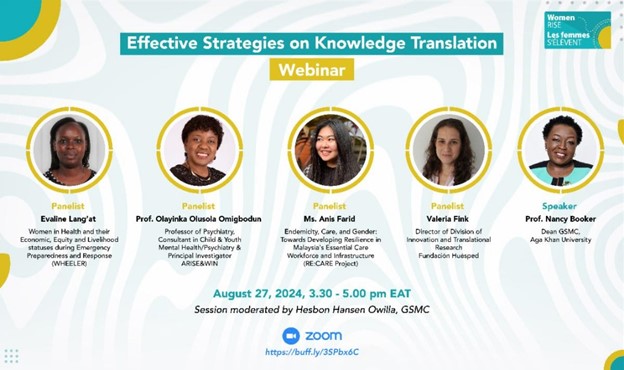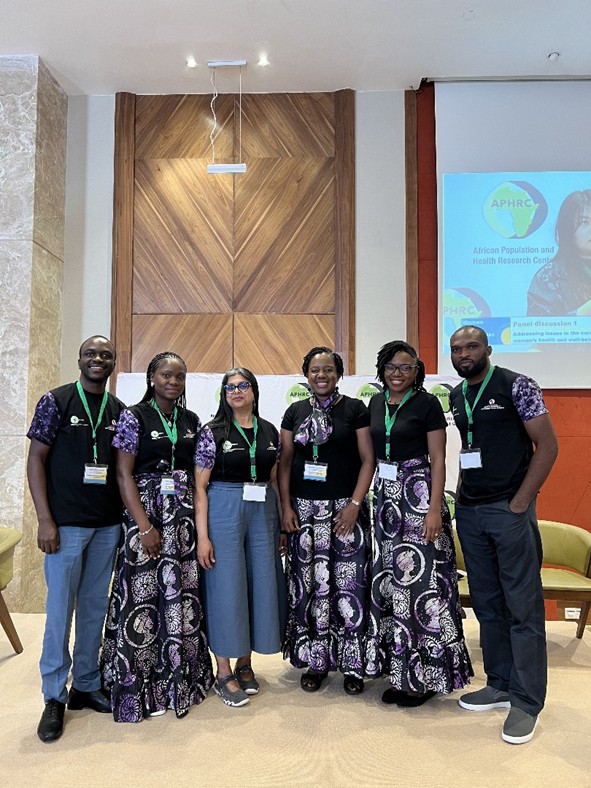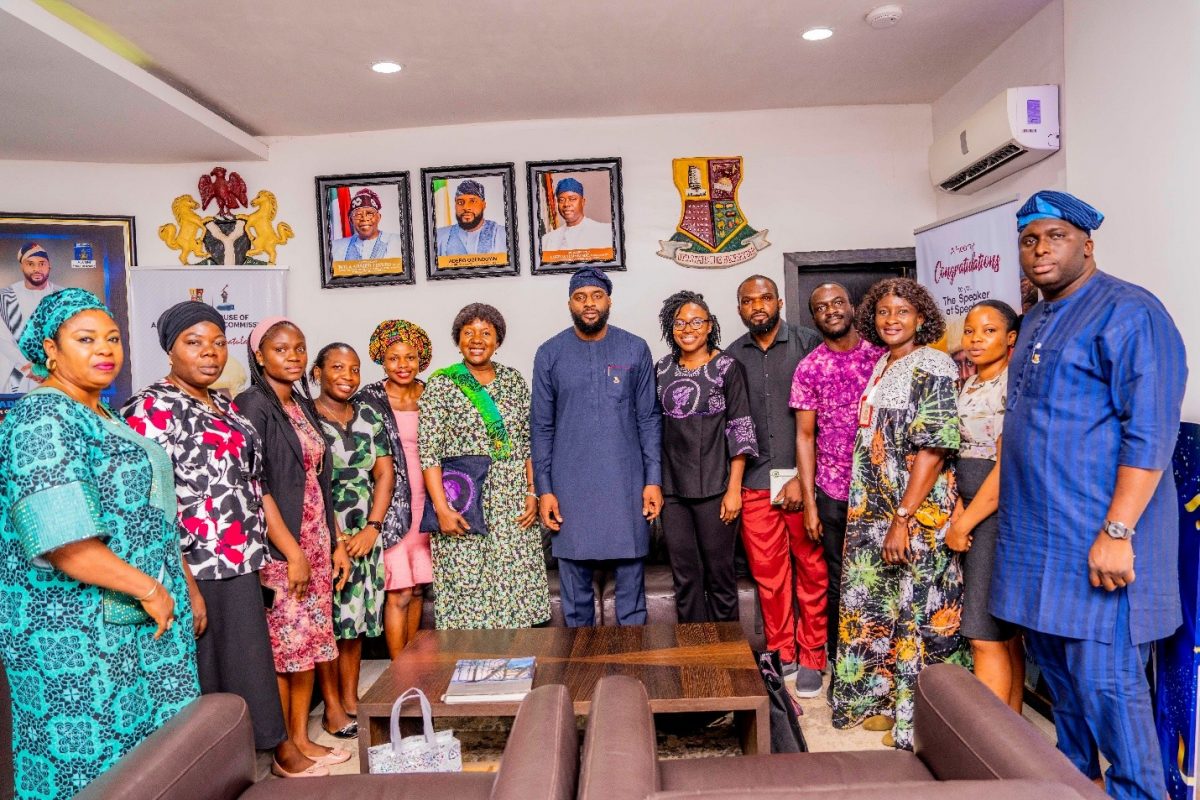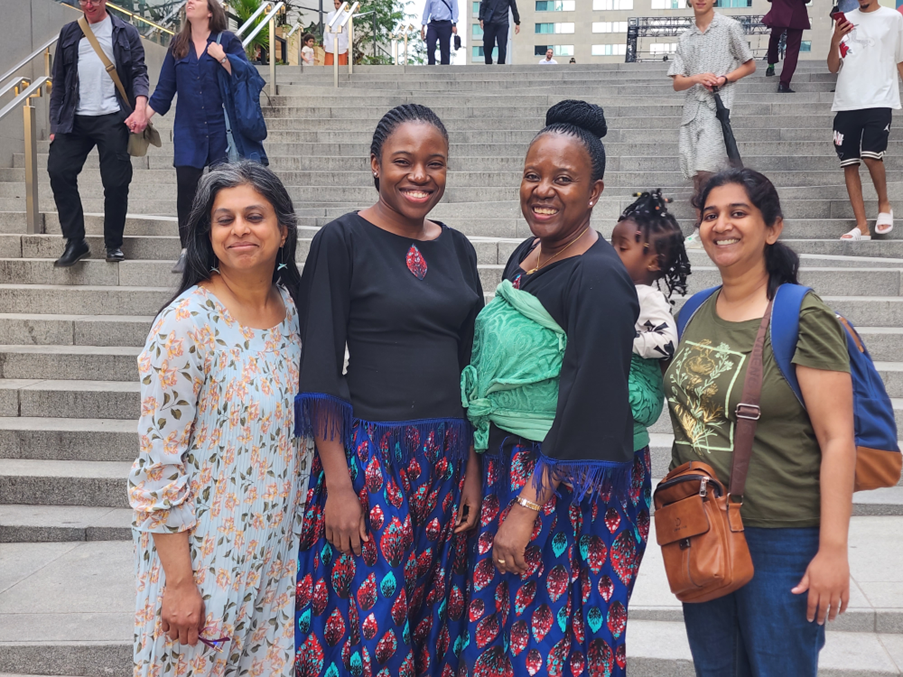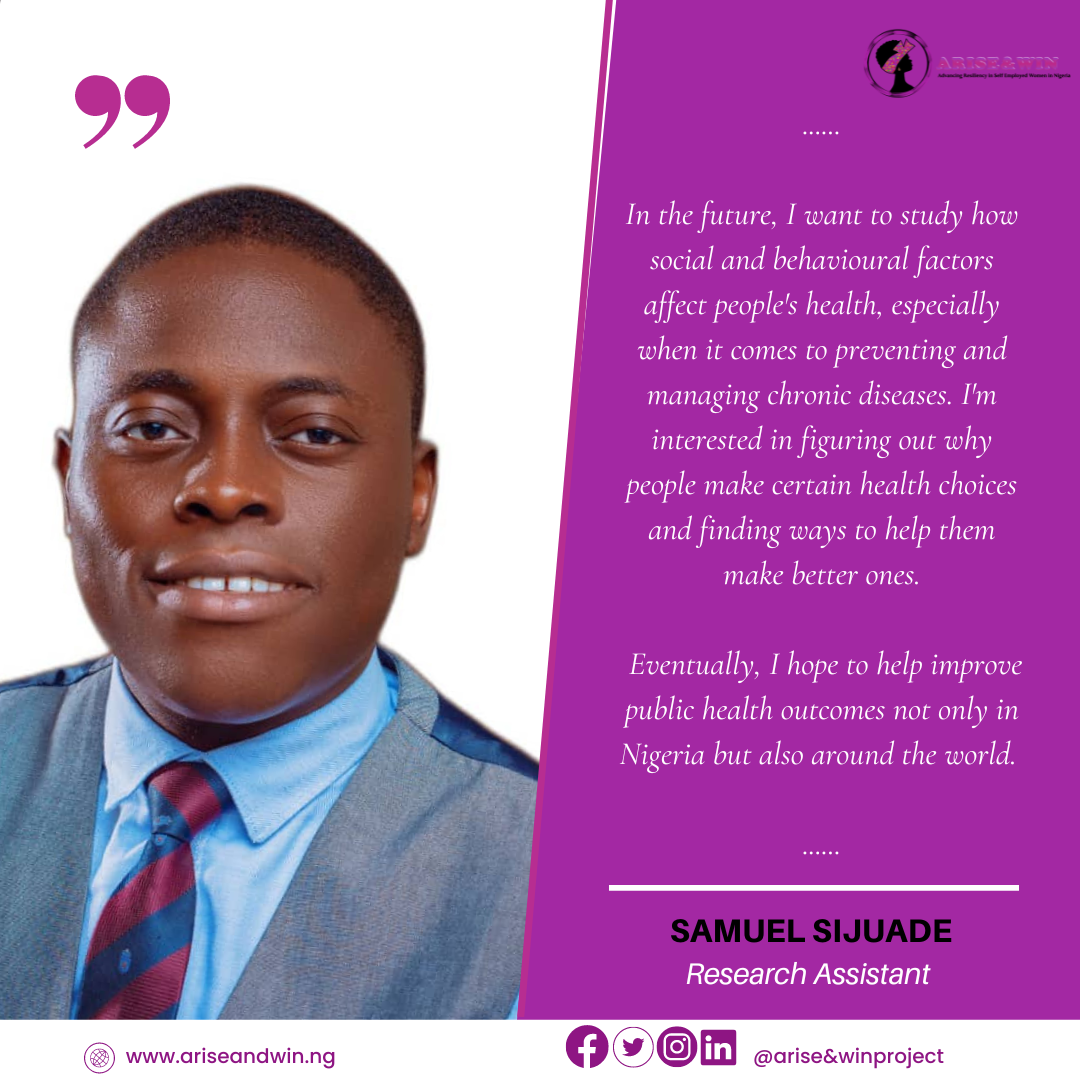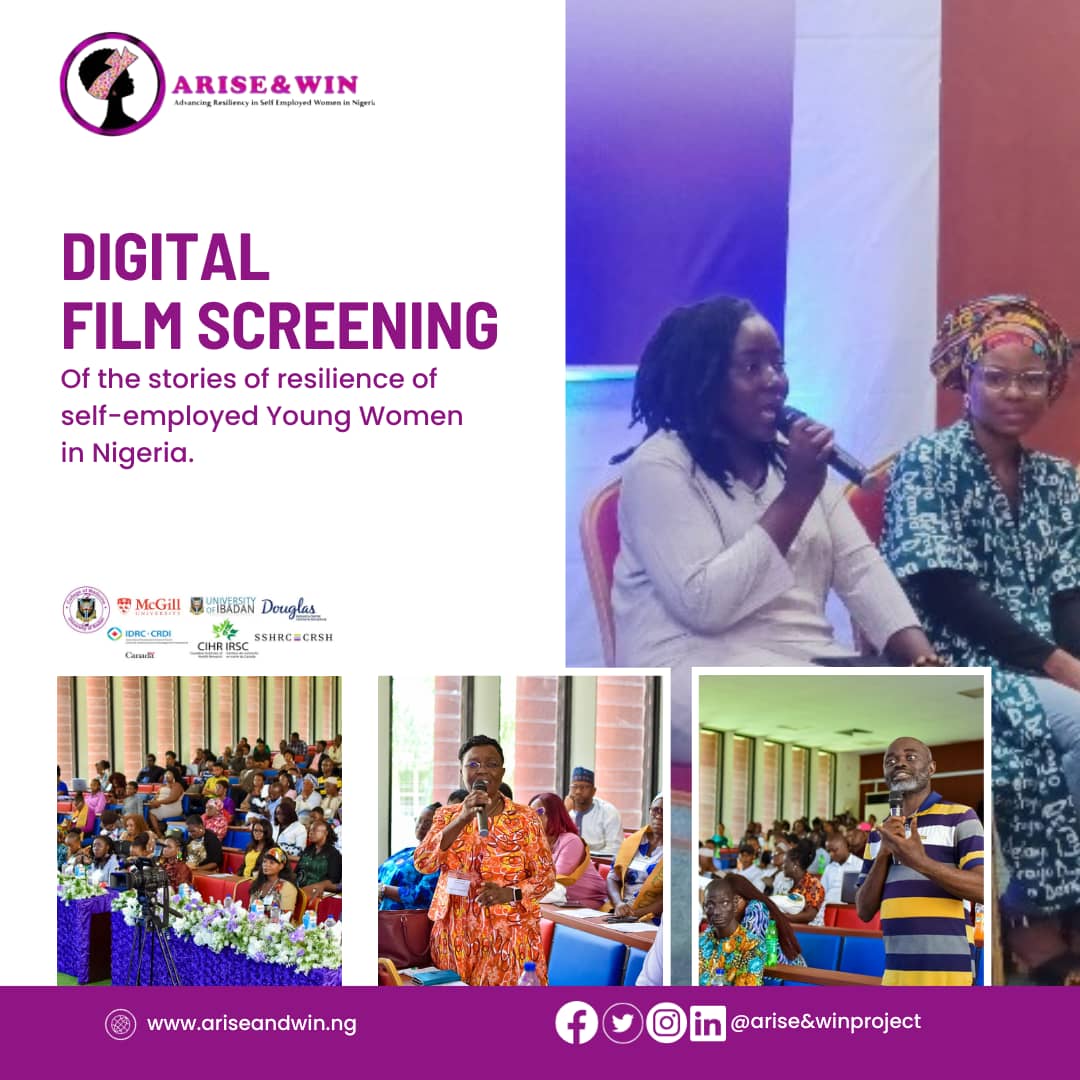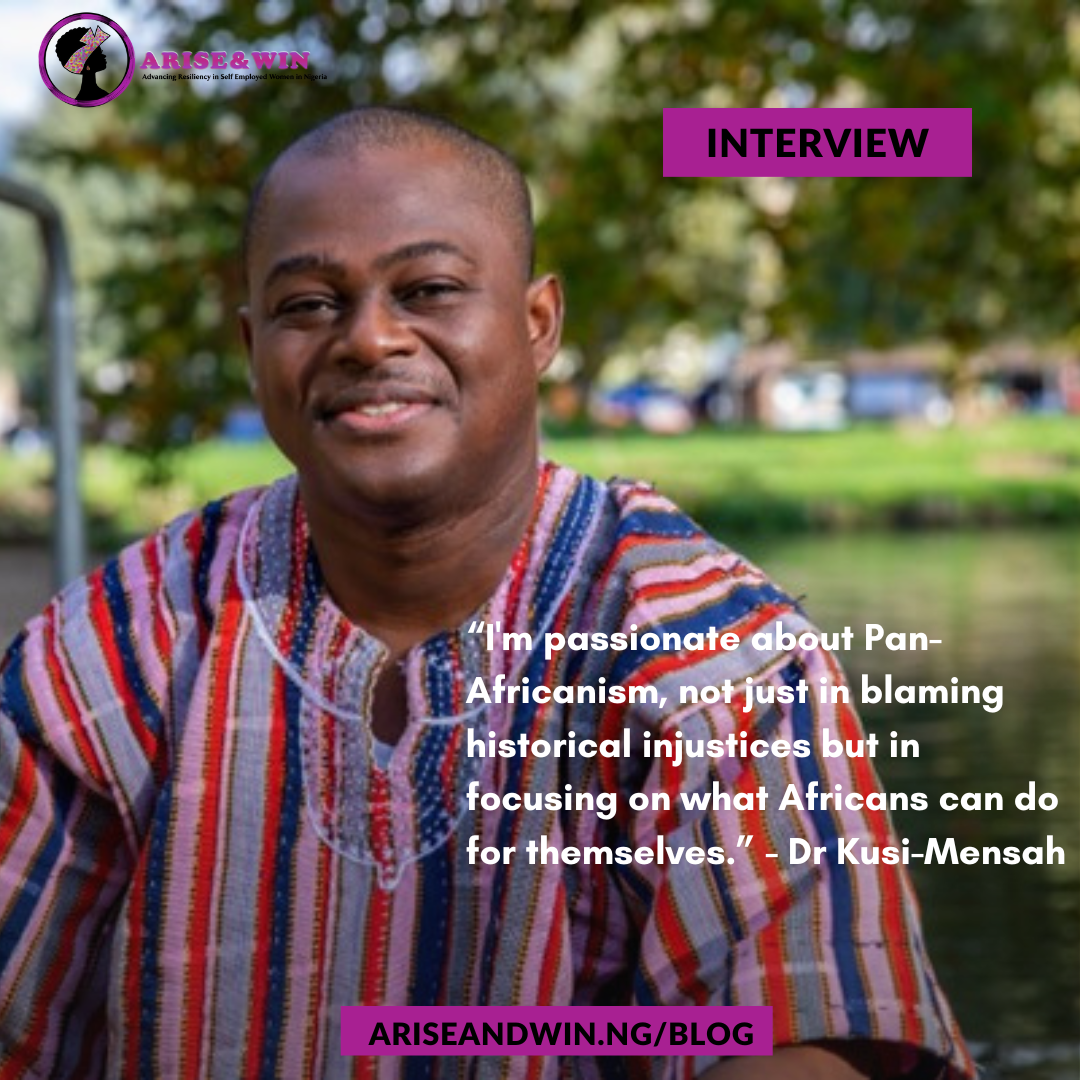Principal Investigator of the Advancing Resiliency In Self-Employed young Women in Nigeria (ARISE&WIN) Project, Professor Olayinka Omigbodun FAS, participates in the Women RISE Health Policy and Research Organization (HPRO) webinar on Effective Strategies on Knowledge Translation.
On Tuesday, August 6, 2024, Understanding the Gendered Impact of COVID-19 on Young Self-Employed Nigerian Women and Co-Producing Solutions that Foster Better Systems and Wellbeing branded as Advancing Resiliency in Self-Employed Women in Nigeria (ARISE&WIN) project team received an engaging invitation from Hesbon Hansen Owilla on behalf of the Women RISE Health Policy and Research Organization (HPRO). The email outlined an upcoming Knowledge Translation (KT) Webinar scheduled for August 27, 2024, and expressed a desire for internal experts to share their Knowledge Translation experiences and strategies. The focus of the webinar was to discuss practical Knowledge Translation strategies and best practices throughout the research cycle drawing examples from our experiences on our project. In view of this, on August 27, 2024, Professor Olayinka Olusola Omigbodun FAS, Principal Investigator on the ARISE&WIN Project served as one of the panellists who spoke on the critical role of Knowledge Translation (KT) in research.
The webinar titled “Effective Strategies on Knowledge Translation” provided an engaging platform to explore strategies for enhancing the application of research findings in real-world settings. Professor Omigbodun’s presentation centred on the Knowledge Translation efforts of the ARISE&WIN team. The Panel title was: “The value of Knowledge Translation at different stages in the research cycle with examples”.
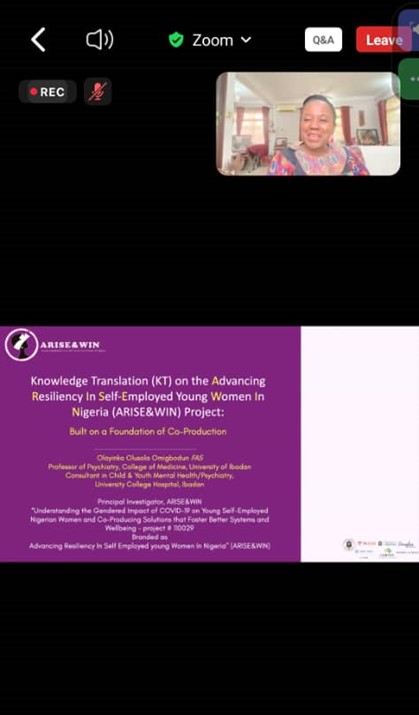
Understanding Knowledge Translation and Its Importance
Professor Omigbodun began by defining Knowledge Translation (KT) as a dynamic, iterative process that involves the synthesis, dissemination, exchange, and application of knowledge to improve health and social outcomes. She emphasised the need for KT to be integrated at every stage of the research cycle, ensuring that findings are not only shared but also translated into actionable policies and interventions.
Drawing on our work with the ARISE&WIN Project, she explained that Knowledge Translation plays an instrumental role in bridging the gap between research and practice. “Research must not sit on the shelf,” she asserted. “It must be translated into real-world solutions that improve people’s lives.” In the context of ARISE&WIN, this approach was embedded from the outset, allowing for a more impactful outcome.

Professor Olayinka Omigbodun emphasised co-production as a fundamental element of ARISE&WIN’s Knowledge Translation (KT) strategy. From the proposal phase, the project engaged a diverse team of experts—including policymakers, gender specialists, sociologists, psychologists, and self-employed young women whose lived experiences have shaped every stage of the research. The self-employed women on our team, who serve as “experts by experience,” were trained to conduct qualitative research and actively contributed to the development of interview guides and sampling strategies. Their participation extended to creating digital stories, which were later shared through film screenings and online platforms, making the research findings both relatable and impactful. The co-production approach continued into the design and delivery of intervention packages through Theory of Change workshops, which included self-employed women, policymakers, and researchers. These workshops focused on creating practical, scalable interventions tailored to the needs of self-employed women, ensuring that the project remained grounded in the realities of its target population.
Strategic Communication and Dissemination of Research Findings
One of the key takeaways from Professor Omigbodun’s presentation was the emphasis on effective communication strategies for Knowledge Translation. The ARISE&WIN project employs a variety of dissemination methods, including stakeholder meetings, conference presentations, open-access peer-reviewed papers, policy briefs, and social media publications. The project’s digital storytelling videos have been particularly impactful in reaching a broad audience, ensuring that the experiences of self-employed women are shared widely and influence policy decisions.
In addition, ARISE&WIN has leveraged its website and social media platforms to keep stakeholders, and the public informed about the progress of the project. The team publishes a bi-monthly newsletter to provide updates, share research findings, and highlight the experiences of team members and participants through these communication outputs and associated blog posts.
Key Lessons Learned and Challenges
In concluding her presentation, Professor Omigbodun shared some of the valuable lessons learned from the ARISE&WIN project:
- Early planning is essential: She reiterated that engaging stakeholders from the beginning of the research design process ensures that the research is actionable and aligned with the needs of those it aims to support.
- Stakeholder involvement throughout the research cycle keeps the work relevant and grounded in real-world challenges and successes.
- Flexibility in Knowledge Translation strategies, she argues, is crucial, allowing researchers to adapt to feedback and interim results.
- Relationship tensions can arise during the co-production process but addressing them early helps maintain the momentum of Knowledge Translation activities.
Professor Omigbodun acknowledged the challenges that come with Knowledge Translation, particularly the difficulties in communicating complex research findings to non-academic audiences. However, she remains persuaded that co-production is the most effective way to ensure that research leads to real-world change.
The webinar concluded with a rich exchange of ideas and feedback, highlighting the importance of Knowledge Translation in addressing real-world challenges. In addition to Professor Omigbodun’s insightful presentation, other panellists provided further depth and context. The panel included discussions on successful approaches for integrating KT across various projects; the critical roles policymakers, researchers and knowledge translation brokers play in ensuring the practical application of research findings; as well as candid reflections on the obstacles and solutions they have encountered during the KT process. In all, the webinar offered a valuable platform for sharing experiences and strategies, inspiring continued collaboration and innovation in Knowledge Translation.
